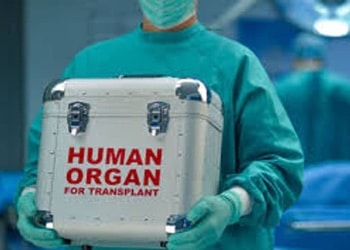Prosecutors in Costa Rica are investigating a suspected organ trafficking ring at a hospital in the country’s capital — the second time in recent years they’ve uncovered such a ring.
The Attorney General’s Office provided few details into its ongoing investigation into organ trafficking at San José’s Hospital México, which is operated by the Costa Rican Social Security Fund (Caja Costarricense de Seguro Social – CCSS), CRHoy reported. No arrests have been made and evidence is still being gathered, according to the agency in charge of human trafficking cases.
SEE ALSO: Costa Rica News and Profile
This is not the first time that a hospital in San José has been implicated in organ trading. In 2017, Dr. Francisco José Mora Palma — the former head of nephrology at the publicly-run Rafael Ángel Calderón Guardia Hospital — was convicted after authorities accused him of heading a ring that trafficked kidneys internationally from 2009 to 2013. Three other doctors, a Greek businessman, and a National Police officer were also convicted in the case. The ring sold kidneys though brokers to recipients in Israel, Ukraine and Eastern European countries.
InSight Crime Analysis
Though Costa Rica became the first Latin American government to sign on to an international treaty to combat trafficking in human organs, the latest case indicates that its government hasn’t rooted out the conditions making its medical institutions ripe for exploitation.
In 2018, Costa Rica agreed to enforce laws implemented by the Council of Europe Convention Against Trafficking in Human Organs, which calls on governments to establish as a crime the illegal removal of human organs from living or deceased donors. The treaty also makes it possible for victims to receive compensation.
The country signed on to the treaty after the first case became public, and international experts criticized it for creating conditions hospitable to organ trafficking.
Costa Rica has become increasingly popular as a medical tourism destination, but this has been accompanied by a rise in “transplant tourism,” Luz Estella Ortiz-Nagle, a Colombian lawyer and human trafficking expert, told La Nación after the first trafficking ring was uncovered. The country had evolved from a small player into an “epicenter” for illegal organ trafficking, she said.
SEE ALSO: Costa Rica Organ Trafficking Trial Links Illicit Transplant Network to Ukraine
The New York Times wrote in an investigation about the earlier case that Costa Rican physicians “had a financial incentive to treat foreign patients because of the country’s dual public-private medical system.” Earning about $7,000 a month in the state-run hospitals, nephrologists and transplant surgeons could earn much more performing transplants after hours at private hospitals. The average salary of a doctor in Costa Rica is $2,100 a month.
Black-market kidney recipients, meanwhile, were paying about $140,000 for the procedure — a windfall for the doctors and brokers. In his attempts to convince one retired surgeon to join his network, Dr. Mora Palma promised him an $18,500 fee for two transplants.
It’s often poor donors who are exploited for small sums for kidneys that are then sold to rich recipients for many thousands of dollars. What’s more, authorities often are hindered by the largely consensual nature of organ sales and by the corruption at many levels that enables the trade’s existence.

